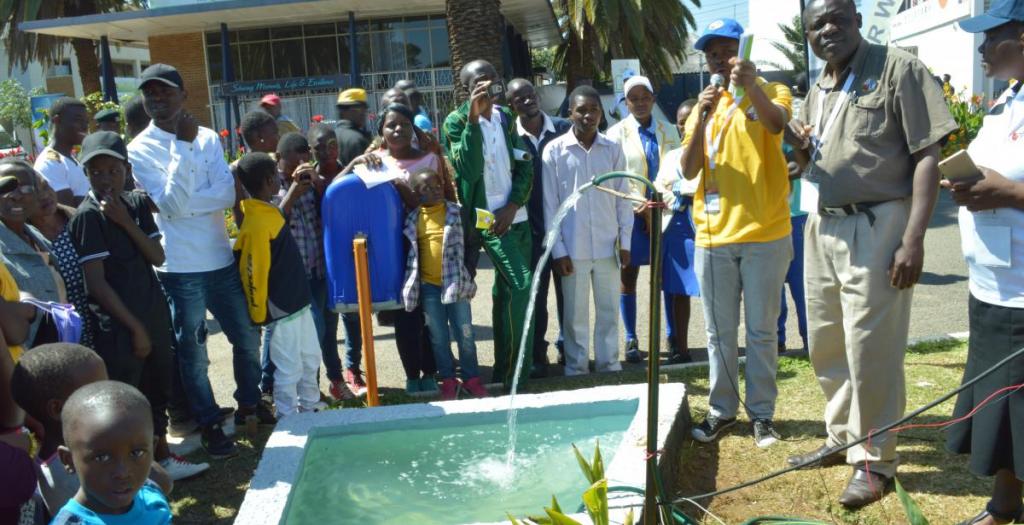Mid-afternoon in Bulawayo, Zimbabwe’s second largest city. Scores of visitors troop to the Ministry of Energy and Power Development exhibition stand at Zimbabwe International Trade Fair (ZITF), attracted by one of Zimbabwe’s top internet sensations, Rolland Lunga aka Boss Kedha. Boss Kedha, an online comedian, immediately welcomes the visitors and invites them to take a tour of the stand where various renewable energy technologies are on display.
With assistance from the Ministry of Energy and Power Development officials, Boss Kedha introduces the visitors to the parabolic-trough solar water heating system. Parabolic-trough solar water heating is a well-proven technology that directly substitutes renewable energy for conventional energy in water heating.
The Ministry of Energy and Power Development official explains that parabolic-trough water heating systems are particularly suited to Zimbabwe due to high direct-beam solar radiation.
“As concentrating systems, parabolic troughs use only direct radiation, so are less effective where skies are cloudy,” explains the Ministry of Energy official.
Next, Boss Kedha takes the visitors around a solar water heater. The solar water heater uses energy from the sun to generate heat (not electricity) which can then be used to heat water.
By offsetting the use of electricity, gas or heating oil, using solar water heaters can provide financial savings by reducing energy costs. While solar water heater devices have been around for over 100 years, the last two decades have seen an increase in the uptake of the renewable energy technology in Zimbabwe, particularly in new urban settlements that are not connected to the grid. Solar water heaters are a very cost effective method of providing hot water where there is no electricity infrastructure.
According to Ministry of Energy and Power Development official, water heating accounts for most of the electricity use in a home. Using a solar geyser can help households save up to 40 per cent on water heating costs.
With the abundance of sunshine in Zimbabwe, the solar geyser is an attractive option for homeowners and business owners looking to effectively reduce their power consumption.
“The geyser works by feeding cold water from the water supply through the piping which get extremely hot as it absorbs the heat from the sun during the day. That heat is then transferred into the water, making it hot, and that water is then fed back into the geyser waiting for you to turn on the hot water and enjoy a sun-powered shower[CF1] ,” says the official.
After touring the biogas station and the solar water pump, Boss Kedha asks the visitors questions about explanations of renewable technology that have been given. And winners get a giveaway t-shirt. Some visitors request for a photo opportunity with Boos Kedha and then walk away.
Access to clean, modern, sustainable energy is critical for improving the health and livelihoods of billions of people around the world. Hivos believes that access to energy can alleviate poverty, improve living conditions and propel economic development.







